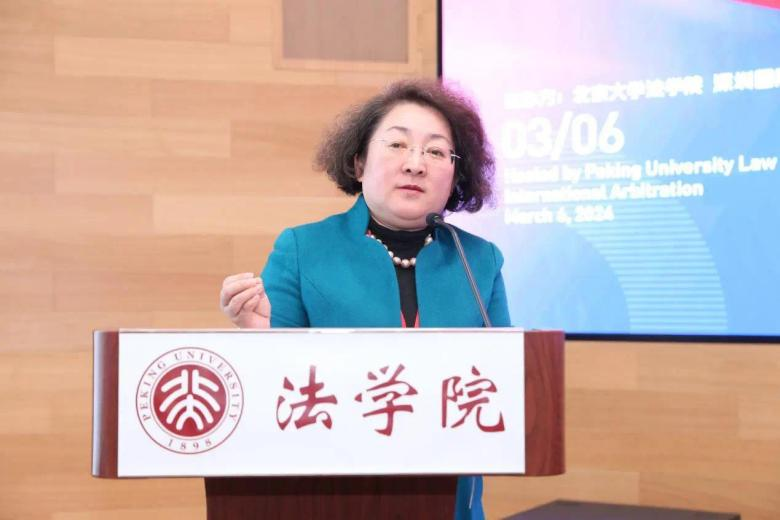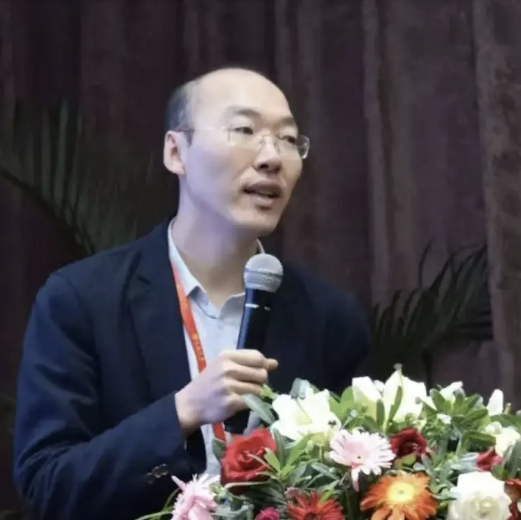You are here: Home»
External Relations»
Newsletter»
FACULTY SCHOLARSHIP HIGHLIGHTS
FACULTY SCHOLARSHIP HIGHLIGHTS
Date:2024-07-05
Our faculty boasts the nation’s top legal thinkers and experts who engage in innovative and challenging research projects on a wide range of important law and policy topics. Their research excellence and achievements have continued to become recognized nationwide and abroad.
1. Deciphering l’esprit d’internationalité: The 1872 Alabama Arbitration and the Pacifist Antithesis of Modern International Law Profession
The article is written by postdoctoral researcher Chen Xiaohang and is published in Leiden Journal of International Law in January 2024.

In international legal historiography, it becomes a commonplace that the successful resolution of the Alabama dispute between Britain and the US by the 1872 Geneva Tribunal of arbitration – the 1872 Alabama arbitration – kindled the progressivist enthusiasm of liberal internationalists for projects of humanitarianism, the codification of international law, and international arbitration. The article aims to take this scholarship further by arguing that, against this backdrop of reformist enthusiasm for international law, two transnational social reform movements – pacifist internationalism and legalist internationalism – converged in a joint effort of social and intellectual mobilization in furtherance of an ordered system of international law and its judicial application in practice. The epitome of this encounter was the almost simultaneous creation of the International Law Association and the Institut de Droit International in 1873. The article shows that international jurists sought to delineate the nascent modern international law profession by strategically distancing their scientific cause of international law from the one embarked on by their pacifist counterparts. By demarcating international legal science in contrast to the contemporary pacifist activism of international law, international jurists set the parameters of their social networks, and manoeuvred for professional outreach. Yet it is precisely by bringing back the pacifist antithesis that had been deliberately relegated into the secondary by international jurists – ‘the men of 1873’ – that some previously under-emphasized aspects of the sensibility of l’esprit d’internationalité can be grasped.
For full text:
2.Equality in Representation? The Efficacy of Court‑Appointed Lawyers in the Chinese Criminal Courts
The article is co-authored by Assistant Professor Wu Yuhao and published in the Asian Journal of Criminology in June 2024.

This study examines the effectiveness of court-appointed lawyers in comparison to private attorneys within China’s criminal justice system, focusing on the “Lawyers for All” program. Utilizing data from Guangdong courts between 2018 and 2021 and covering five types of crimes, the research employs propensity score matching to evaluate sentencing lengths and probation rates. The findings indicate that defendants represented by court-appointed lawyers typically receive shorter sentences than those with private counsel, but they are less likely to be granted probation. Additionally, an innovative metric—“actual time served in prison”—suggests a reduced incarceration period for defendants with court-appointed attorneys. The study proposes that the collaborative role of court-appointed lawyers within the Chinese courtroom workgroup potentially influences these outcomes, contrasting with the adversarial nature of private attorneys. This analysis contributes to the broader understanding of legal representation in authoritarian regimes, highlighting the unique dynamics within China’s legal system.
For full text:
3. From “Contractual” to “Quasi-judicial” ——The Progressive Approach of International Dispute Settlement and Mechanism Reform of WTO Dispute Settlement
The article is written by Professor Zhao Hong and is published in the Journal of WTO and China, Vol.14, Issue 2 in June 2024.

The international dispute settlement mechanism has experienced a process of progress from war to peace, from diplomacy to law. In the path of resolving international dispute through legal methods, is there a development path from international arbitration (“contractual”) to international judicial adjudication (“quasi-judicial”)? This paper discusses this topic, answers whether this path means fairness and progress of the international dispute settlement system, compares the similarities and differences between this path and arbitration and judicial awards within domestic legal system. At the same time, this paper points out that in addition to the development path from “contractual” to “quasi-judicial”, the legal path of international dispute settlement also has the characteristics of “pluralistic symbiosis”, “inclusive coexistence” and even “mutual convergence”. Meanwhile, under such circumstances as a background and reference, this paper discusses the characteristics, crisis and reform of the WTO’s dispute settlement and puts forward some thoughts on the reform of this mechanism.
4. Online Trials in China: Legal and Institutional Approaches During Different Stages of the Pandemic
The article is co-authored by Associate Professor Liu Zhewei and is published in Law and Development Review in June 2024.

China has set off a wave of legal and institutional approaches to meet the need of access to justice and rule of law in cyberspace. Online trials and Internet courts as the approaches have not been developed so rapidly until the outbreak of COVID-19. This article will divide the development of online trials in China into three stages and discuss their functions and orientations during different times of the pandemic.
For full text:
5.Public Sphere or Private Asset? The Nature of Digital Commons in China
The article is written by Associate Professor Hu Ling and is published in Peking University Law Journal in February 2024.

Since its introduction into China, the Internet is said to bring in a robust force of commons in cyberspace. Under the ideology of ‘sharing’ and ‘free flow of information’, the Internet is making good use of users' free labor and their personal data. The unique business model has become the foundation of digital commons in China. Furthermore, we could figure out the rise of the Internet in China has been following the similar ‘illegal’ model all the time, thus causing copyright infringement and other disputes accordingly. This paper traces the early ages of cyberspace in China, trying to figure out how the private-public mixed nature of the digital commons came into being and discusses relavant legal issues during the process, shedding a light on the unique relationship between mode of production tranformation and legal regime.
For full text:



